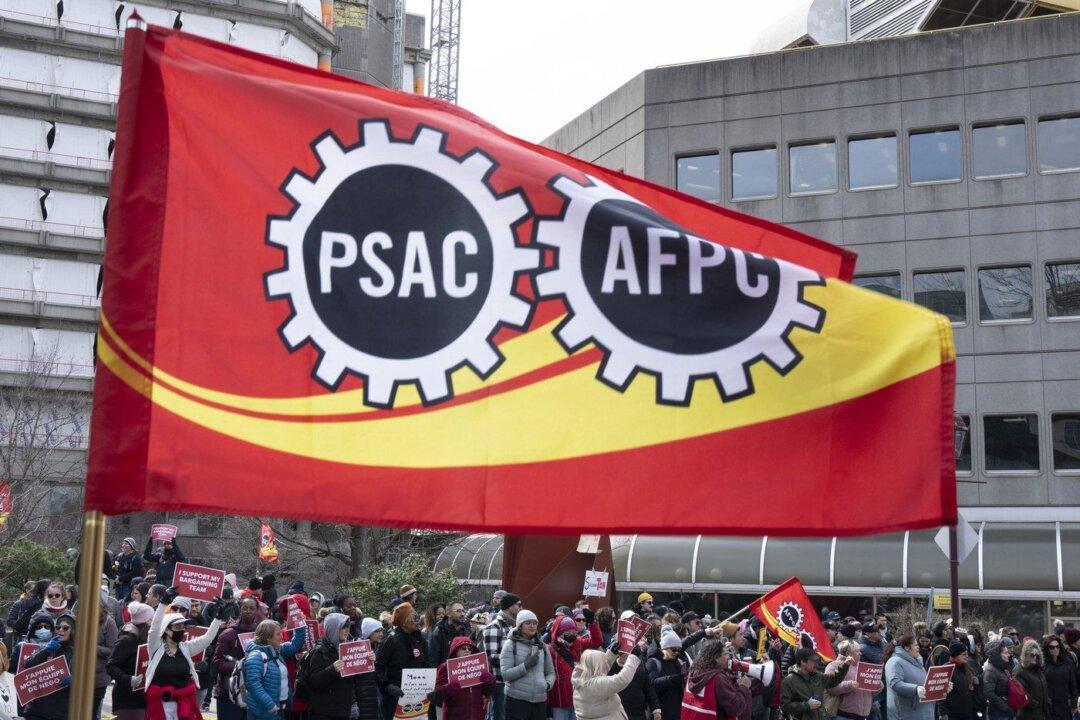The federal labour board has found low turnout and irregularities of “significant concern” with the strike vote that led more than 100,000 public servants to walk off the job this week.
The board found in a decision posted Thursday that the Public Service Alliance of Canada failed to properly let members know it had shortened the voting period by eight days, moving the deadline from April 19 to April 11.





